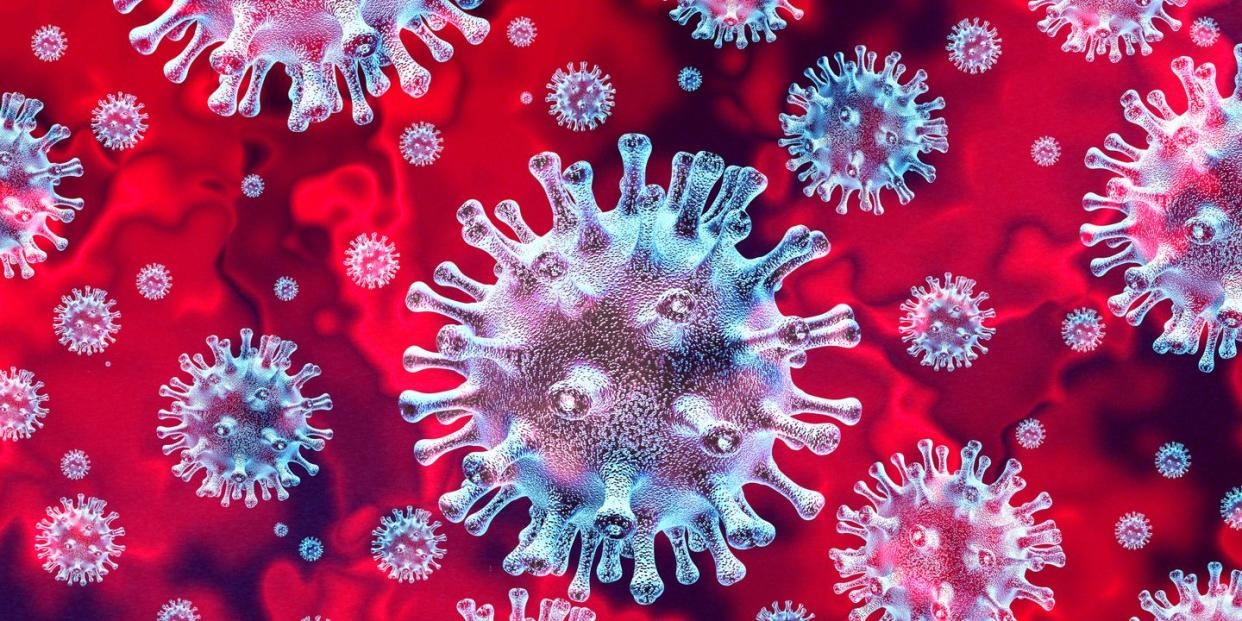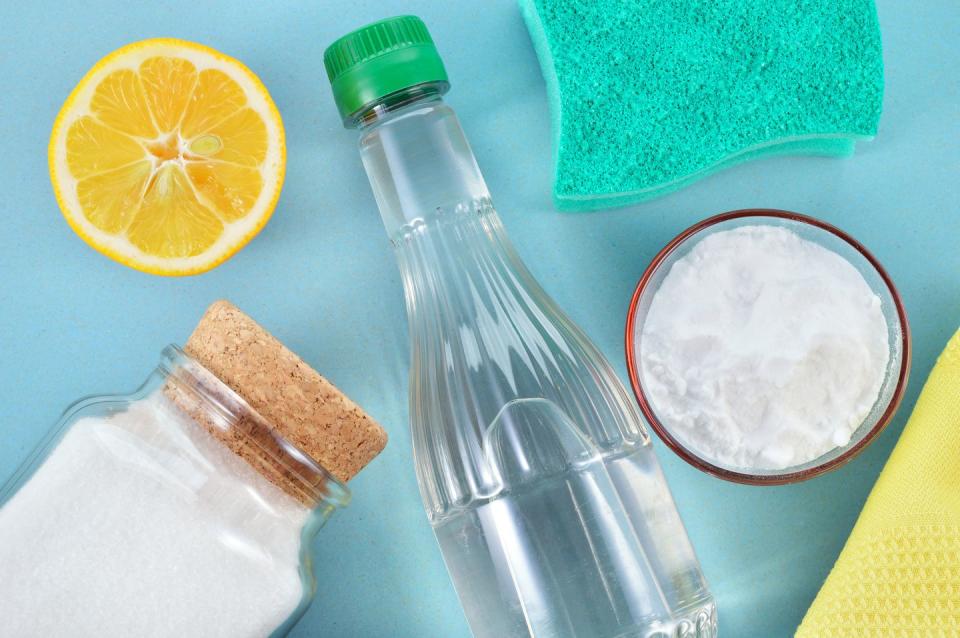Does Vinegar Kill Germs? Here's Why It's Not Reliable, According to Experts

If spring cleaning wasn’t already a thing, it's an even bigger deal now as people frantically scrub their homes in the hope of preventing an invasion of the novel coronavirus. If you’re not a fan of harsh chemicals or couldn’t find your go-to cleaning products at the grocery store, you’re likely looking for DIY cleaners to whip up at home. Just make sure to steer clear of any vinegar-based recipes. While vinegar is a popular cleaning agent, it only kills some bacteria and viruses—and COVID-19 isn’t one of them.
Can vinegar kill coronavirus germs?
“The organism you are trying to eliminate is important, as is the contact time, concentration, and type of vinegar you use,” says Elizabeth Bihn, Ph.D., executive director of the Institute for Food Safety at Cornell University. “Studies show vinegar is not very effective on either viruses or bacteria in settings that consumers are likely to use.” For instance, one study found 6% acetic acid vinegar was effective against Mycobacterium tuberculosis, but it took 30 minutes of contact to work. On top of that, Bihn says most commercial vinegars are only 4% to 5% acetic acid. “For SARS-CoV-2, the coronavirus that produces COVID-19, there is no research to suggest that vinegar would be effective,” she adds. In fact, no vinegar-based cleaning products are included in the EPA’s list of disinfectants that work against SARS-CoV-2.
Does vinegar kill germs on fruits and vegetables?
Dipping your oranges and cucumbers in bleach or other harsh chemicals is dangerous, while washing them in vinegar is a waste of time and resources. “Current guidance from the USDA recommends rinsing produce under cold running water to remove any lingering dirt,” says Bihn. “If there is a firm surface, such as on apples or carrots, the surface can be scrubbed with a brush.”
Currently, there’s no evidence of food being associated with the transmission of SARS-CoV-2, unlike microbial foodborne pathogens (like Norovirus, Salmonella, and Listeria), says Bihn. However, it can be transmitted if a person touches recently contaminated surfaces and then touches their eyes, nose, or mouth. “This transmission route can be effectively managed through frequent handwashing, including before and after eating any foods and eliminating hand contact with the face,” says Bihn.

Does vinegar kill germs anywhere in the house?
Don a pair of gloves and follow these guidelines from the Centers for Disease Control and Prevention (CDC) to regularly disinfect items throughout your household, especially those that are frequently touched.
Electronics: For phones, remote controls, keyboards, and the like, follow manufacturer cleaning instructions and, when in doubt, use wipes that contain at least 70% alcohol.
Hard surfaces: With things like tables, doorknobs, light switches, toilets, and faucets, wash dirt off first. Then, disinfect with an EPA-registered product on this list or a diluted bleach solution (4 teaspoons per quart of water or 5 tablespoons per gallon of water).
Soft surfaces: Clean according the label instructions or use products from the list above that are effective on porous surfaces.
Laundry: Wash according to the label instructions, using the warmest suitable water setting and dry completely. Don’t forget to disinfect your hamper as well and consider placing a disposable liner (like a trash bag) inside.
Support from readers like you helps us do our best work. Go here to subscribe to Prevention and get 12 FREE gifts. And sign up for our FREE newsletter here for daily health, nutrition, and fitness advice.
You Might Also Like
